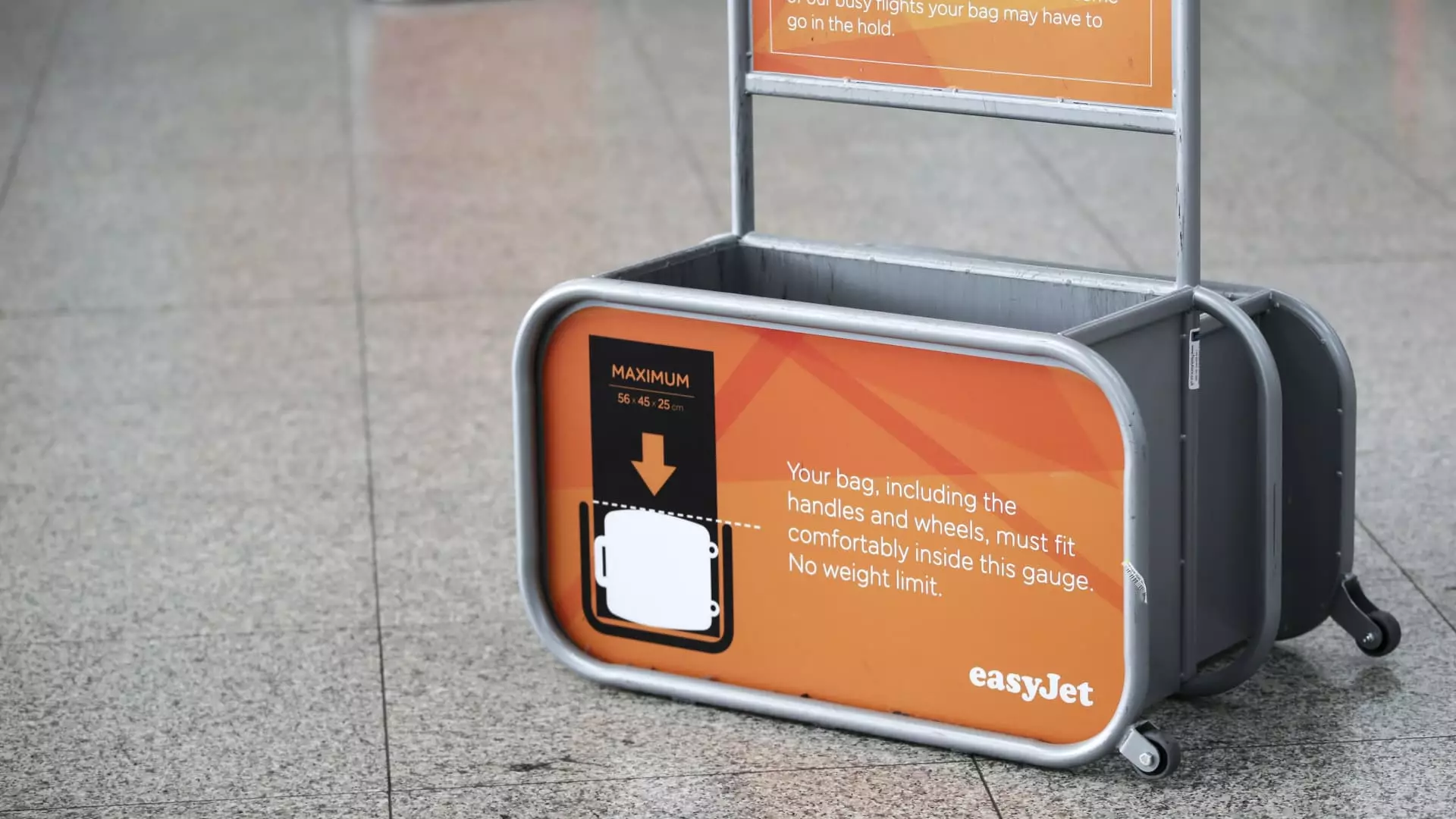The low-cost airline sector has undergone significant transformations in recent years, as carriers strive to enhance profitability while catering to the budget-conscious traveler. EasyJet, a pioneer in the industry, has emerged as a notable player in this space, boasting a remarkable increase in ancillary revenue. This article delves into EasyJet’s financial performance, the implications of recent regulatory challenges, and the broader trends shaping the airline industry.
EasyJet recently reported a staggering £3.59 billion ($4.5 billion) in ancillary revenues for the fiscal year concluded in October. This figure is emblematic of a growing trend among airlines to generate substantial income through various add-ons, including extra baggage fees, priority boarding, and in-flight meals. The airline’s ancillary revenue surged by 22% compared to the previous year, with the airline sector alone accounting for a record £2.46 billion.
This business model has gained traction as airlines have increasingly stripped down their base fares to present more competitive prices, thereby appealing to cost-sensitive consumers. Ancillary products allow passengers to tailor their travel experiences according to their preferences and needs, notifying them of optional services while keeping the base fare affordable. With a third of EasyJet’s customers opting out of additional purchases, the airline appears to understand its market well, strategically marketing options to those willing to pay for enhancements.
Despite its impressive performance, EasyJet finds itself at odds with Spanish regulators pursuing an industry-wide crackdown on perceived “abusive practices.” Recently, EasyJet was fined €29 million by Spain’s Ministry of Consumer Rights for practices deemed unfair, such as charging additional fees for hand luggage and seat selection. EasyJet’s CEO, Johan Lundgren, expressed strong disagreement with the penalty, arguing that such measures contradict European regulations and undermine consumer choice.
This regulatory challenge not only highlights the tension between budget airlines and authorities aiming to protect consumers but also raises questions about the sustainability of the ancillary revenue model. The fines also hint at a growing discontent among low-cost carriers, as multiple airlines—including Ryanair and Norwegian—have joined EasyJet in disputing the fines, arguing that they are fundamentally proportional and unfair, given the growing complexity of air travel pricing.
Despite external pressures from regulatory bodies and rising operational costs, EasyJet reported an impressive profit before tax of £610 million, reflecting a robust 34% increase from the previous year. This growth has been underpinned by a record summer performance, complemented by shifting consumer demographics prioritizing travel post-pandemic. Lundgren attributed this success to strong demand for travel experiences, revealing a market rebound where travelers are eager to take to the skies again.
Interestingly, this positive outcome contrasts with that of rival Ryanair, which reported an 18% decline in mid-year profits despite an increase in passenger numbers. Ryanair’s challenges stemmed from pressures on consumer spending and delays in aircraft deliveries from Boeing, illustrating the operational challenges even established airlines face.
As EasyJet and its competitors navigate this transforming landscape, the model of ancillary revenue appears essential for future profitability. However, the backlash from regulatory bodies poses questions regarding how these airlines will need to adapt. Will they continue to assert their right to offer unbundled pricing, or will they reassess their pricing strategies to mitigate future penalties?
Additionally, as competition in the low-cost market intensifies, airlines may need to become more transparent about their pricing structures to alleviate consumer concerns about hidden or excessive fees. A balanced approach that preserves the low-cost offerings while addressing regulatory scrutiny is paramount for sustaining growth.
EasyJet’s journey illustrates the importance of adaptability in the airline industry. With rising consumer expectations, evolving regulatory environments, and fierce competition, securing ancillary revenue while maintaining a transparent and fair approach will be crucial for the future of budget airlines. As the industry undergoes this transition, all eyes will remain on how carriers navigate the complex interplay between profitability and consumer rights.

